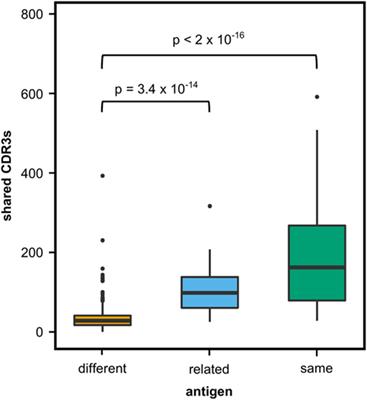PERSPECTIVE
Published on 21 Jun 2018
In Vitro Evolution of Antibodies Inspired by In Vivo Evolution

doi 10.3389/fimmu.2018.01391
- 4,543 views
- 16 citations
8,885
Total downloads
44k
Total views and downloads
PERSPECTIVE
Published on 21 Jun 2018

ORIGINAL RESEARCH
Published on 11 Jun 2018

PERSPECTIVE
Published on 04 Jun 2018

ORIGINAL RESEARCH
Published on 24 Apr 2018

PERSPECTIVE
Published on 07 Mar 2018
ORIGINAL RESEARCH
Published on 22 Dec 2017
